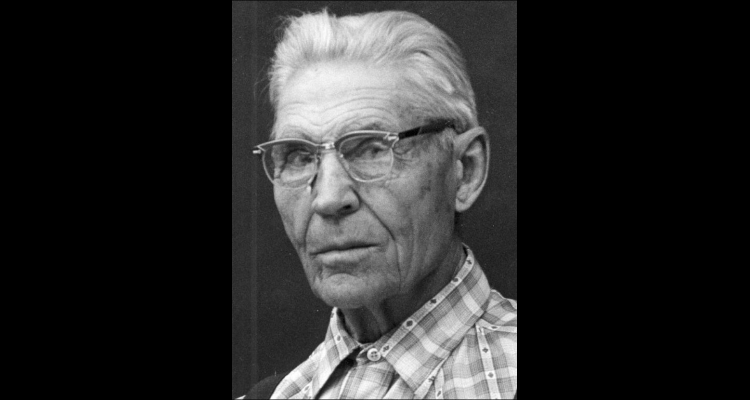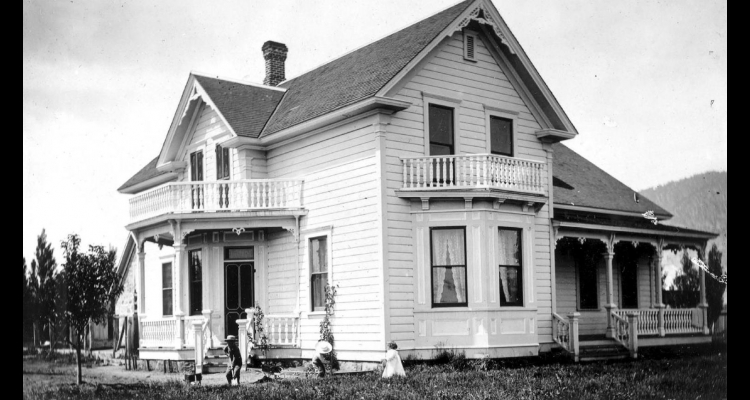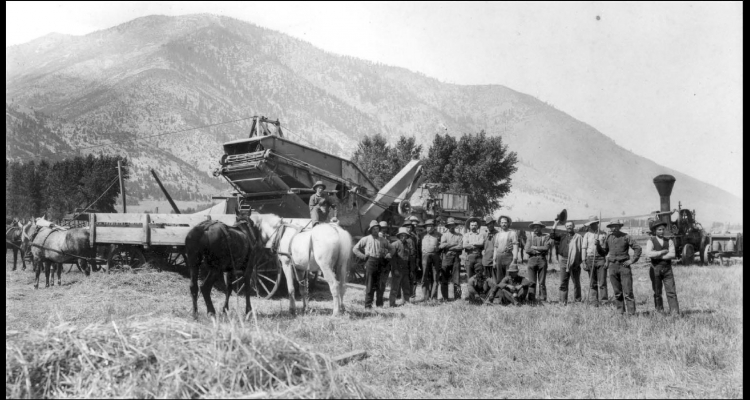John Dressler: An Oral History
John Dressler: Recollections of a Washoe Statesmen
Interviewee: John Dressler
Interviewed: 1970
Published: 1972
Interviewer: Mary Ellen Glass
UNOHP Catalog #049
John Dressler is a native of Nevada, born in 1916. Mr. Dressler, a Washoe, typifies the Indian in Nevada, who holds to the Indian ways whenever possible. Dressler’s life story illustrates the experiences of a reflective Indian youth nurtured in a family of elders who recognized the terminal aspects of the Washoe tribal ways. They prepared him to enter the non-Indian economy, to compete in it, and he in turn encouraged and prepared his own children to face a future society even more advanced.
The nomadic life of the Washoe Indians terminated with the mining and agricultural frontiers in western Nevada which followed quickly the Fremont expedition of 1844. By the 1850s some of the first mining operations were beginning and the first ranches in Carson, Eagle and Washoe Valleys were servicing the California ‘49ers and later emigrants. In 1864, Nevada, largely because of the Comstock and the settlements surrounding it, became a state. Confinement of the Indians had already set in by the time of the Pyramid Lake Indian War of 1860, and the reservations were established at Pyramid and Walker Lake in that period. It would be almost one hundred years later that John Dressler would record his life story. Even his grandfather must have been born after the reservation had begun.
When John Dressler speaks about his grandfather’s homestead ranch, he is speaking about a non-Indian economy—the agricultural frontier. His aunt’s and uncle’s employment during the summers at Emerald Bay, Lake Tahoe, where he learned the ways of nature, was in a non-Indian milieu, though Tahoe was ancestral land where the Washoe had summered generation after generation in communal clans.
The first generation Washoes (after the white settlement) were still steeped in the traditions of the tribal Washoe, but succeeding generations up against white culture and employment in the non-Indian economy increasingly lost their Indian identity. Most present-day Indians recognize this, and many of them cannot even speak their native language. Acculturation long ago pulled the Indian away from the ways of his forefathers. Even John Dressler’s grandfather was already a frontier rancher when John was born on February 27, 1916. If his grandfather were fifty, sixty at this time, he would have been born between 1866 and 1876, so that the grandfather’s parents would have been born about 1816-1826 and would have been one of the tribal groups living in Nevada when Jedediah Smith, the first white man to cross Nevada, came through.
Dressler must have entered Stewart Indian School about 1922 and graduated about 1935, when he began work on road construction at Pyramid Lake. This was the beginning of his formal education. He already spoke English, which he had picked up largely from white playmates, both at Emerald Bay and in Carson Valley. He was popular with his classmates and was elected student body president when he was in high school in Stewart; he also participated in athletics. At Stewart he also had to work on ranches during the summer to earn money. Though he had a scholarship offer to go on to Northwestern Teachers College in Oklahoma, his finances did not permit that, so he began his working life, largely based on the vocational training he had received at Stewart.
Dressler found employment in Sparks with the Southern Pacific Railroad, where he learned welding, and later in Reno as an iron worker. He became aware of the unions and gained a reputation as being able to work with people. Later on in scouting and church work and finally with tribal and inter-tribal councils, John Dressler worked to better the living conditions of Indians and non-Indians.
John Dressler has a nostalgia for Indian culture, but he recognizes that education and training are essential and that with education and employment the Indian becomes more identified with non-Indian society. He has achieved much because he devoted himself, his family, and his friends to helping people. He has perpetuated and passed on the Washoe teachings of his grandfather.
This introduction and oral history is reprinted with permission from the University of Nevada Oral History Archive, Special Collections and University Archives, University of Nevada, Reno.
Article Locations
Related Articles
None at this time.
Further Reading
None at this time.





